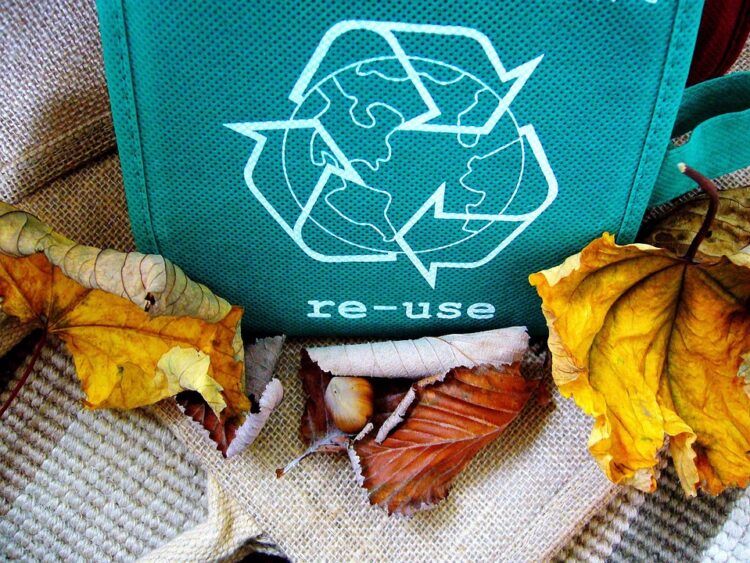[ad_1]
Unlocking the Environmental Power of Recycling: How Recycling Benefits Our Planet
In today’s world, the importance of recycling cannot be overstated. With the increasing global population and the resulting rise in consumption, it is more crucial than ever to reduce waste and conserve our natural resources. Recycling plays a key role in achieving these goals by turning waste materials into new products, thereby reducing the need for raw materials and minimizing the impact on the environment. In this article, we will explore the environmental power of recycling and how it benefits our planet.
What is Recycling?
Recycling is the process of collecting, sorting, and processing used materials to produce new products. This can include materials such as paper, plastic, glass, metal, and electronics. By recycling these materials, we can save energy, reduce pollution, and conserve natural resources. Recycling not only helps to protect the environment but also provides economic benefits by creating jobs and stimulating the economy.
How Recycling Benefits Our Planet
Recycling offers a wide range of environmental benefits that help to protect our planet for future generations. Some of the key benefits of recycling include:
Conserving Natural Resources
One of the primary benefits of recycling is the conservation of natural resources. By recycling materials such as paper, plastic, and metal, we can reduce the demand for raw materials extracted from the earth. This helps to preserve forests, reduce water and air pollution, and minimize the impact of mining and logging on the environment.
Reducing Energy Consumption
Recycling also helps to reduce energy consumption by saving energy that would otherwise be used in the extraction, processing, and manufacturing of new products. For example, recycling aluminum cans saves up to 95% of the energy required to make new aluminum from raw materials. By recycling materials like glass, plastic, and paper, we can significantly reduce our energy footprint and lower greenhouse gas emissions.
Preventing Pollution
Recycling plays a crucial role in preventing pollution by diverting waste from landfills and incinerators. When organic waste decomposes in landfills, it releases methane, a potent greenhouse gas that contributes to climate change. By recycling materials like paper, plastic, and metal, we can reduce the amount of waste sent to landfills and minimize the release of harmful pollutants into the environment.
Protecting Wildlife
By reducing the amount of waste that ends up in landfills and oceans, recycling helps to protect wildlife and marine ecosystems. Plastic waste, in particular, poses a significant threat to marine life, with millions of marine animals dying each year from ingesting or becoming entangled in plastic debris. By recycling plastic and other materials, we can help to reduce the impact of waste on wildlife and preserve biodiversity.
Common Questions About Recycling
What Can Be Recycled?
A wide range of materials can be recycled, including paper, plastic, glass, metal, and electronics. Some items that can be recycled include newspapers, magazines, cardboard, plastic bottles, glass jars, aluminum cans, and old electronics. It is important to check with your local recycling facility to determine which materials are accepted for recycling in your area.
How Can I Recycle Properly?
To recycle properly, it is important to follow the guidelines provided by your local recycling program. This may include sorting materials into different bins, rinsing out containers, removing lids and labels, and avoiding contamination by keeping non-recyclable items out of the recycling stream. By following these guidelines, you can help to ensure that your recyclables are processed efficiently and effectively.
What Are the Benefits of Recycling Electronics?
Recycling electronics, also known as e-waste recycling, helps to prevent harmful chemicals and metals from contaminating the environment. Electronic waste contains valuable materials such as gold, silver, and copper that can be recovered and reused in new products. By recycling electronics, we can reduce the demand for raw materials, save energy, and prevent the release of toxic substances into the environment.
Conclusion
In conclusion, recycling is a powerful tool for protecting the environment and conserving our natural resources. By recycling materials such as paper, plastic, glass, metal, and electronics, we can reduce waste, save energy, prevent pollution, and protect wildlife. Recycling offers a wide range of environmental benefits that help to create a more sustainable future for generations to come. By incorporating recycling into our daily lives and supporting initiatives to promote recycling, we can all contribute to a healthier and more environmentally friendly planet. Let’s unlock the environmental power of recycling and work together to make a positive impact on our planet.
[ad_2]












